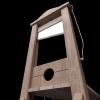
Medical Errors and Medical Narcissism
#1

Posted 26 July 2007 - 07:24 PM
So do perfectionist doctors have trouble managing medical errors?
That’s part of the idea. A bigger part, however, is that most health professionals (in fact, most professionals of any ilk) work on cultivating a self that exudes authority, control, knowledge, competence and respectability. It’s the narcissist in us all—we dread appearing stupid or incompetent. The problem, I think, is that health care is so unpredictable and stressful and contains such high stakes, that many practitioners exaggerate their competence. They come to believe that one ought never appear ignorant, uncertain, hesitant or wrong. So when this professional self-image is challenged, these persons are tempted to withdraw, or become hyper-defensive or just plain arrogant.
Again, where’s the evidence for this?
Probably the best evidence is in the form of thousands of people who suspected they or a loved one was grievously harmed by error, but who never had their questions adequately answered by the health professionals treating them. Instead, these people asked a lawyer to find out what happened. But maybe the most interesting thing I stumbled across in my research was the way health professionals rationalize their medical errors.
Rationalize?
Yes. Remember that calling X an “error” is essentially an interpretation. Now, when your self-interest is at stake—such as in not getting sued for medical malpractice—it’s amazing how ingenious one can become in “re-interpreting” what happened. An error might become an “incident”; or we decide we don’t have enough evidence to say absolutely that an error caused the patient’s harm; or we decide that maybe an error did cause the patient harm, but that the harm wasn’t so bad; or that the catastrophe that happened “wasn’t my fault.” Maybe we decide it wasn’t anyone’s fault.
So these are ways the health professional tries to protect him or herself from the emotional pain of owning up to the error and his or her obligation to disclose it?
Right, and that’s what I call “medical narcissism.” I’m not saying all health care professionals are imperious or arrogant—although a small minority certainly are. Every profession boasts a minority of obnoxious, overbearing narcissists. What I am saying is that there is an atmosphere in health care that can breed narcissistic inclinations and attitudes that make it very difficult to disclose medical errors truthfully and ethically. And encouraging that atmosphere are the malpractice carriers and hospital lawyers who have long insisted that health professionals not admit liability—in other words, not admit error or apologize for it.
http://www.emory.edu...ary7/sandr1.htm
Defenders of the status quo are always stronger than reformers seeking change,
UNTIL the status quo self-destructs from its own corruption, and the reformers are free to build on its ashes.
#2

Posted 26 November 2013 - 10:18 AM
Seems to me that doctors are trained in “critical thinking” just enough to criticize alternative medicine but not enough to criticize mainstream medicine.So these are ways the health professional tries to protect him or herself from the emotional pain of owning up to the error and his or her obligation to disclose it?
Right, and that’s what I call “medical narcissism.” I’m not saying all health care professionals are imperious or arrogant—although a small minority certainly are. Every profession boasts a minority of obnoxious, overbearing narcissists. What I am saying is that there is an atmosphere in health care that can breed narcissistic inclinations and attitudes that make it very difficult to disclose medical errors truthfully and ethically. And encouraging that atmosphere are the malpractice carriers and hospital lawyers who have long insisted that health professionals not admit liability—in other words, not admit error or apologize for it.
http://www.emory.edu...ary7/sandr1.htm
An MD speaks:
We are, as doctors, neither trained in statistical reasoning nor any kind of critical thinking outside of the diagnose-then-medicate paradigm. With the advent of “guidelines”, things got worse because the pharmaceutical industry now has only one attack point instead of convincing every single doctor individually, and physicians feel bound by the guidelines because deviating could be interpreted as malpractice.
And yes, except for some rather rare cases, to me, statins are the ultimate modern-day quackery. What quackery is is pitily decided by majority vote, not by independent science, not by statistics, not by experience, not by observation or even inference. People are so [bleeeep]-scared by “high cholesterol” that not taking a statin, even only for a couple of weeks, is the same as not taking an antibiotic in a severe infection.
http://blog.sethrobe...ctors/#comments
Defenders of the status quo are always stronger than reformers seeking change,
UNTIL the status quo self-destructs from its own corruption, and the reformers are free to build on its ashes.











